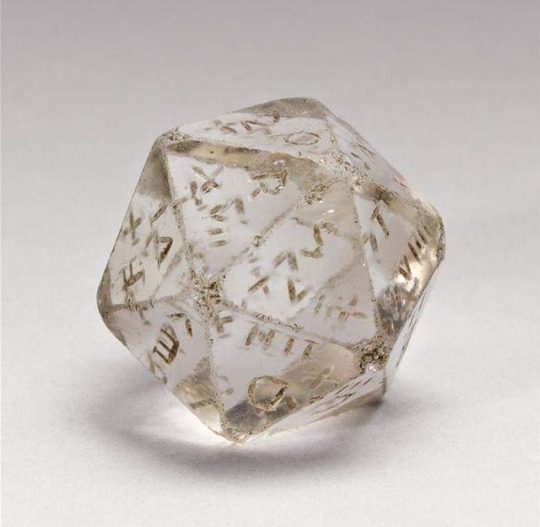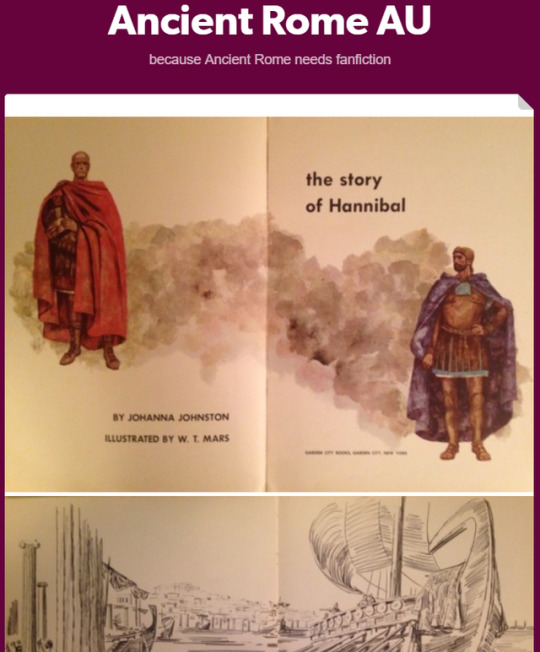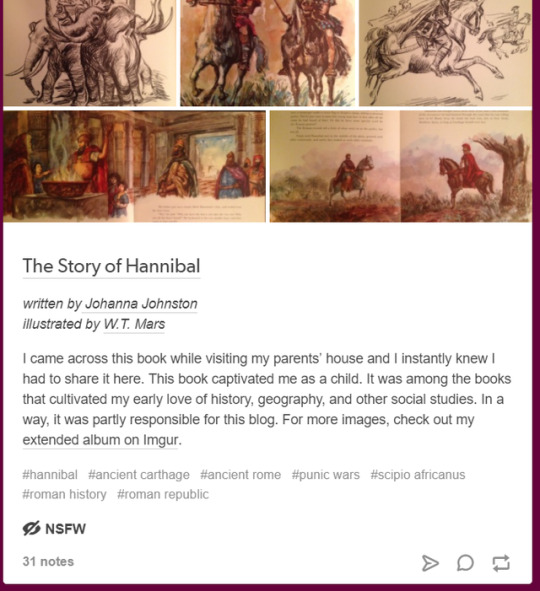Video
youtube
Explore a 3D reconstruction of Pompeii
0 notes
Text
Extreme heat of Vesuvius eruption turned a man's brain to 'glass'

When Mount Vesuvius erupted in the year 79, the volcano unleashed an avalanche of gas and rock hot enough to boil blood, vaporize flesh and even transform bits of brain tissue into glass, according to a new study.
Archaeologists rarely uncover human brains during their digs, and if they do, the organs feel soap-like and smooth. During a process called saponification, triglycerides in the fatty brain tissue react with charged particles in the surrounding environment, transforming into soap over time. Scientists found something very different, however, when they examined the remains of a man who perished in Herculaneum during the Vesuvius eruption.
Enveloped in a surge of hot ash, the victim’s brain had been burned to twisted black bits through a process called vitrification. The glassy material “encrusted” the surface of the man’s skull, according to a report published Jan. 22 in the The New England Journal of Medicine. Read more.
1K notes
·
View notes
Text
Spanish + English = Spanglish
Français + Anglais = Franglais
Philippine Hokkien Chinese + Tagalog + English = Hokaglish
Latin + Greek = Leek or Gratin?
Help me settle this, people!
171 notes
·
View notes
Photo

20 sided quartz die, Roman 1st-3rd centuries AD [648x633]
24K notes
·
View notes
Text
hades isn’t a badass. hades named his three-headed-guard-of-the-underworld-dog spot. hades whispers to his flowers to make them grow. hades grows fruit. there’s no sun in the underworld.
hades isn’t a badass. stop saying this false thing
605K notes
·
View notes
Link
Heartbreaking, because they would have had no idea what was going on.

548 notes
·
View notes
Text
Tombstones of Ancient Roman Dogs

Aeolidis tumulum festivae
cerne catellae,
quam dolui inmodice
raptam mihi praepete
fato.
Behold the tomb of Aeolis, the cheerful little dog, whose loss to fleeting fate pained me beyond measure.

Raeda[r]um custos
numquam latravit
inepte. nunc
silet et cineres
vindicat um-
bra suos.
This guard of the coaches never barked unsuitably. Now he is silent and his shade protects his ashes.

Quam dulcis fuit ista quam benigna
quae cum viveret in sinu iacebat
somni conscia semper et cubilis
o factum male Myia quod peristi
latrares modo si quis adcubaret
rivalis dominae licentiosa
o factum male Myia quod peristi
altum iam tenet insciam sepulcrum
nec sevire potes nec insilire
nec blandis mihi morsib(us) renides.
How sweet and friendly she was! While she was alive she used to lie in the lap, always sharing sleep and bed. What a shame, Midge, that you have died! You would only bark if some rival took the liberty of lying up against your mistress. What a shame, Midge, that you have died! The depths of the grave now hold you and you know nothing about it. You cannot go wild nor jump on me, and you do not bare your teeth at me with bites that do not hurt.

Portavi lacrimis madidus te nostra catella,
quod feci lustris laetior ante tribus.
ergo mihi, Patrice, iam non dabis osculla mille
nec poteris collo grata cubare meo.
tristis marmorea posui te sede merentem
et iunxi semper manib(us) ipse meis,
morib(us) argutis hominem simulare paratam;
perdidimus quales, hei mihi, delicias.
tu dulcis, Patrice, nostras attingere mensas
consueras, gremio poscere blanda cibos,
lambere tu calicem lingua rapiente solebas
quem tibi saepe meae sustinuere manus,
accipere et lassum cauda gaudente frequenter
Bedewed with tears I have carried you, our little dog, as in happier circumstances I did fifteen years ago. So now, Patrice, you will no longer give me a thousand kisses, nor will you be able to lie affectionately round my neck. You were a good dog, and in sorrow I have placed you in a marble tomb, and I have united you forever to myself when I die. You readily matched a human with your clever ways; alas, what a pet we have lost! You, sweet Patrice, were in the habit of joining us at table and fawningly asking for food in our lap, you were accustomed to lick with your greedy tongue the cup which my hands often held for you and regularly to welcome your tired master with wagging tail.
Source: Electronic Archive of Greek and Latin Epigraphy
31K notes
·
View notes
Text
if ancient authors were on tumblr
plato: constantly monitors the philosophy tag and starts shit with everyone by asking questions until they contradict themselves. people get really pissed at him until he posts a selfie and he’s absolutely shredded
aristotle: writes long explanatory posts about a variety of subjects. he and plato also get into big discussions over reblogs, which they never cut down, pissing all of their followers off
sappho: reblogs lots of pictures of flowers and pastel aesthetic posts, with the occasional wlw post thrown in (though not often, because she always gets weird messages afterwards). her poetry posts are always incredibly popular even when she only posts a few phrases from something she’s working on
homer: popular freestyle rapper who adapts old folk stories and records himself composing. people constantly send him messages asking if achilles and patroclus are together, but he always keeps his answers vague, which leads to a ton of arguing from his fans
herodotus: runs one of those “did you know” fact blogs, but it’s hit-or-miss as to whether he’s actually posting something true
lucian: quality shitposter when he’s not posting neat sci-fi and weird satire. reblogs every single “the moon is gay” post he sees
aristophanes: runs a pun blog. people are torn between finding him hilarious and finding him immature. either way, he responds to all of his asks with fart jokes
cicero: constantly goes on ridiculously long rants about politics. he’s that guy who adds unnecessary comments on every single post he reblogs. he occasionally posts poetry but it only ever gets reblogged by atticus and catullus, who does so to make fun of him
catullus: reblogs literally everything that sappho posts. everything else is mostly dramatic personal posts, complaining, and the occasional poem. his blog confuses everyone because it is a strange mix of nonsensical all-caps screaming and eloquent, heart-wrenching verse
vergil: reblogs a lot of nature posts, especially ‘save the bees’ stuff. every once in a while, he posts poetry, but he always deletes it a few minutes later. he and horace are constantly tagging each other in things.
horace: posts a lot of pictures of food and wine. occasionally goes on weird tangents about bizarre topics but is generally likable. sometimes reblogs posts of trees from vergil and tags them with ‘:(((’
martial: gossip extraordinaire. vagues about everyone he knows but is so witty and good at it that nobody can tell who exactly it is and nobody really cares. occasionally posts a bunch of stuff sucking up to his boss and writes particularly salty posts about people who complain about it
pliny the younger: mostly posts #relatable content and occasionally goes on long tangents about his ships. adds smilies to the end of all of his posts and is completely sincere about every one of them
suetonius: constantly starting shit between other bloggers and spreading rumors. particularly fond of kinkshaming. nobody is sure where he gets his information from, but some people still take him seriously for some reason
8K notes
·
View notes
Photo
source

thank god he’s okay
153K notes
·
View notes
Text
Swiss researchers try to get ancient Roman fridge working (again)

Archaeologists near the Swiss city of Basel are trying to definitively establish if mysterious shafts discovered at Switzerland’s extensive Augusta Raurica site in 2013 could have been ancient refrigerators.
The Romans used shafts like the four-metre deep examples at Augusta Raurica – some 20 kilometres from Basel – as cool stores during summer.
The shafts were filled with snow and ice during winter and then covered with straw to keep the space cool well into the summer months. This then allowed for everything from cheese to wine – and even oysters – to be preserved during warm weather.
Now a team lead by Peter-Andrew Schwarz from the University of Basel is attempting, for the third time, to demonstrate that the Augusta Raurica shafts were indeed used as fridges, Swiss news agency SDA/ATS reports. Read more.
698 notes
·
View notes
Photo



I honestly have no idea how Tumblr’s algorithm determined that there was something NSFW about an illustrated children’s book about the life and times of Hannibal Barca. A more appropriate categorization would be NSFR (not safe for Romans).
Let’s see how the review goes.
80 notes
·
View notes
Photo

ITV Documentaries - Pompeii with Michael Buerk (2016)
Another documentary focusing on showing “actual” reconstruction of the city as well as the practical, daily lives of the people who lived there.
It can be watched here or here now.
0 notes
Photo

Gladiator Jensen from the story I will write one day (as soon as I am employed full-time again).
This is a combination of 3D models and some photographic elements.
#in the shadow of the giant#ancient rome au#my fanfic#j2 au#historical au#my manip#3d model#3d artwork#gladiator!jensen
76 notes
·
View notes
Photo

On the Origins of the Wishbone Tradition
The superstitious ritual of breaking a wishbone has been around for centuries with an interesting history rooted in Medieval Europe. As far as historians and archaeologists can tell, in 15th Century Europe the Etruscans, an ancient civilization, believed geese had supernatural visionary powers as oracle birds with these prophetic powers residing within its bones. They observed the migratory behavior of geese and believed their reappearance each year signaled the return of the sun, the arrival of spring, and with it, fertility and prosperity.
The day to celebrate the magical and prophetic powers of the goose was November 11, Saint Martin’s day. After feasting on a fattened goose, its bones would be dried in the sun, and the next day the breastbone in particular would be examined to predict the severity of the approaching winter. A dark wishbone predicted a severe winter, whereas a lighter color forecast a mild winter.
In 1455, the German physician Dr. Hartleib witnessed and described this practice, and also noted that the Teutonic knights of the time would use a goose’s wishbone to determine the most advantageous time to wage war. Some sources allege the Etruscans wishing to benefit from the powers of the oracle would pick up the breastbone also known as the furcula and stroke it whilst making a wish; hence the modernization of its name. It has also been suggested the highly superstitious Etruscans would practice a ritual known as ‘alectryomancy’ or ‘rooster divination’ using roosters as walking Ouija boards. They would draw a circle on the ground and divide it into wedges representing the letters of the Etruscan alphabet. Small bits of food would be scattered on each wedge, and a chicken or rooster would be placed in the center of the circle. As the bird snacked, scribes would note the sequence of letters that it pecked at, and local priests would use the resulting messages to divine the future and answer the city’s most pressing questions.
As the Romans crossed paths with the Etruscans, they adopted some of their customs, including ‘rooster divination’ and making wishes on the furcula. According to legend, the Romans went from petting the bones to breaking them due to a supply and demand situation. Two people would wish on the same bone, then break it to see who got the bigger piece and their wish. As the Romans left their cultural mark throughout Europe, they brought the wishbone superstition to England. Breaking the wishbone was well established as a British tradition by the time the Pilgrims reached the New World of the Americas. Thus, the ancient Etruscan superstition became part of celebration by way of Rome and England. Etymologists claim the English expression ‘get a lucky break’ initially applied to the person winning the larger half in a wishbone tug-of-war.
276 notes
·
View notes


